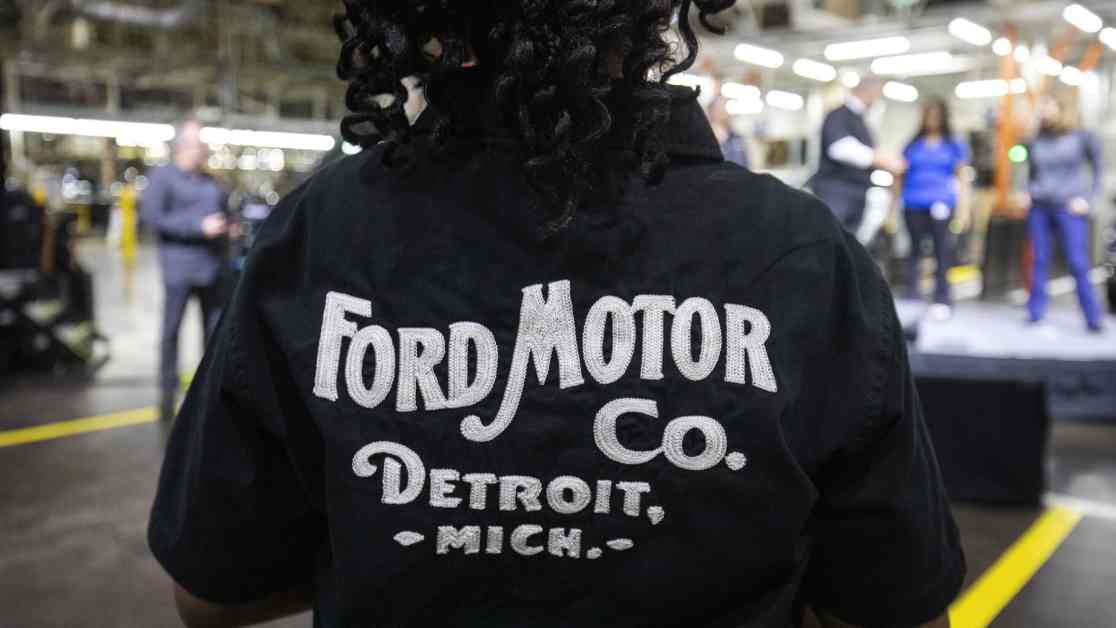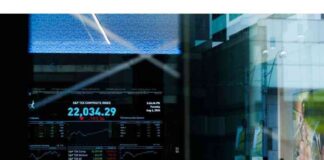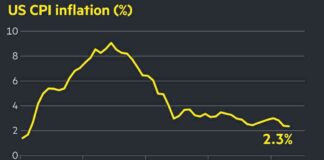Ford Motor Company recently made headlines by reversing its commitments to diversity, equity, and inclusion initiatives, joining a growing list of companies that are scaling back on such efforts. The decision was communicated to Ford employees in an internal memo that cited changing social and political environments as the driving force behind the policy shift. This move by Ford marks a significant departure from the company’s previous stance on DEI, as it now aligns itself with other corporations that have chosen to prioritize other factors over diversity and inclusion.
Ford’s Policy Reversal
The decision to reverse its DEI policies comes at a time when Ford is celebrating the launch of its new Ford F-150 and Ranger trucks at the Dearborn Plant in Michigan. The company’s CEO, Jim Farley, stated in the memo that Ford had re-evaluated its DEI practices in light of the changing external and legal landscape surrounding political and social issues. This reevaluation led to the conclusion that Ford would no longer use quotas for minority dealerships or suppliers, nor would it have hiring quotas in place.
Additionally, Ford announced that it would no longer participate in the Human Rights Campaign’s Corporate Equality Index, a move that has raised eyebrows within the LGBTQ+ community and beyond. The Corporate Equality Index evaluates companies based on their LGBTQ+ inclusion practices, and Ford had previously received a perfect score on this index. By withdrawing from this evaluation process, Ford is signaling a shift away from prioritizing LGBTQ+ rights in its corporate policies.
Industry Trends
Ford’s decision to reverse its DEI policies follows similar moves by other major companies, including retailer Tractor Supply and motorcycle manufacturer Harley Davidson. Both companies have recently announced their intentions to scale back on diversity and inclusion efforts, citing conservative backlash and a desire to appeal to more rural or conservative-leaning customers. This trend of companies stepping back from DEI commitments has raised concerns among advocates for equality and inclusion, who fear that such actions could have long-term consequences for employees and consumers.
The backlash against DEI initiatives has gained momentum in recent years, fueled in part by conservative activists on social media and legal challenges to affirmative action policies. The Supreme Court’s decision to overturn affirmative action in colleges has emboldened conservative groups to push for similar rollbacks in corporate DEI programs. This pressure from various fronts has put companies like Ford in a difficult position, forcing them to navigate the complex terrain of social and political issues while also maintaining their corporate values and commitments.
Implications and Reactions
The decision by Ford to reverse its DEI policies has sparked a range of reactions from different stakeholders. The Human Rights Campaign, a leading LGBTQ+ advocacy group, has criticized Ford’s move as shortsighted and detrimental to the company’s long-term reputation. The organization has vowed to continue evaluating Ford and other Fortune 500 companies on their LGBTQ+ inclusion practices, regardless of their participation in the Corporate Equality Index.
On the other hand, some industry analysts see Ford’s decision as part of a broader trend towards political neutrality among corporations. Liz Hoffman, Semafor’s business and finance editor, believes that many companies are moving away from DEI initiatives in response to the changing social and political landscape. This shift reflects a desire among companies to avoid getting entangled in polarizing issues and focus instead on serving their customers and communities.
Ford’s decision to reverse its DEI policies has raised questions about the future of diversity and inclusion efforts in the corporate world. As more companies opt to scale back on such initiatives, advocates for equality and inclusion are left wondering how to ensure that marginalized groups are not left behind. The tension between corporate interests and social responsibility continues to play out in the ongoing debate over DEI, with no clear resolution in sight.
In conclusion, Ford’s reversal of its DEI policies is a reflection of the complex challenges facing companies in today’s rapidly changing society. As corporations grapple with competing demands and pressures, the issue of diversity, equity, and inclusion remains a contentious and evolving one. Only time will tell how Ford and other companies navigate these challenges and uphold their commitments to creating fair, just, and inclusive workplaces for all.






















